

Share
12th March 2022
03:13pm GMT

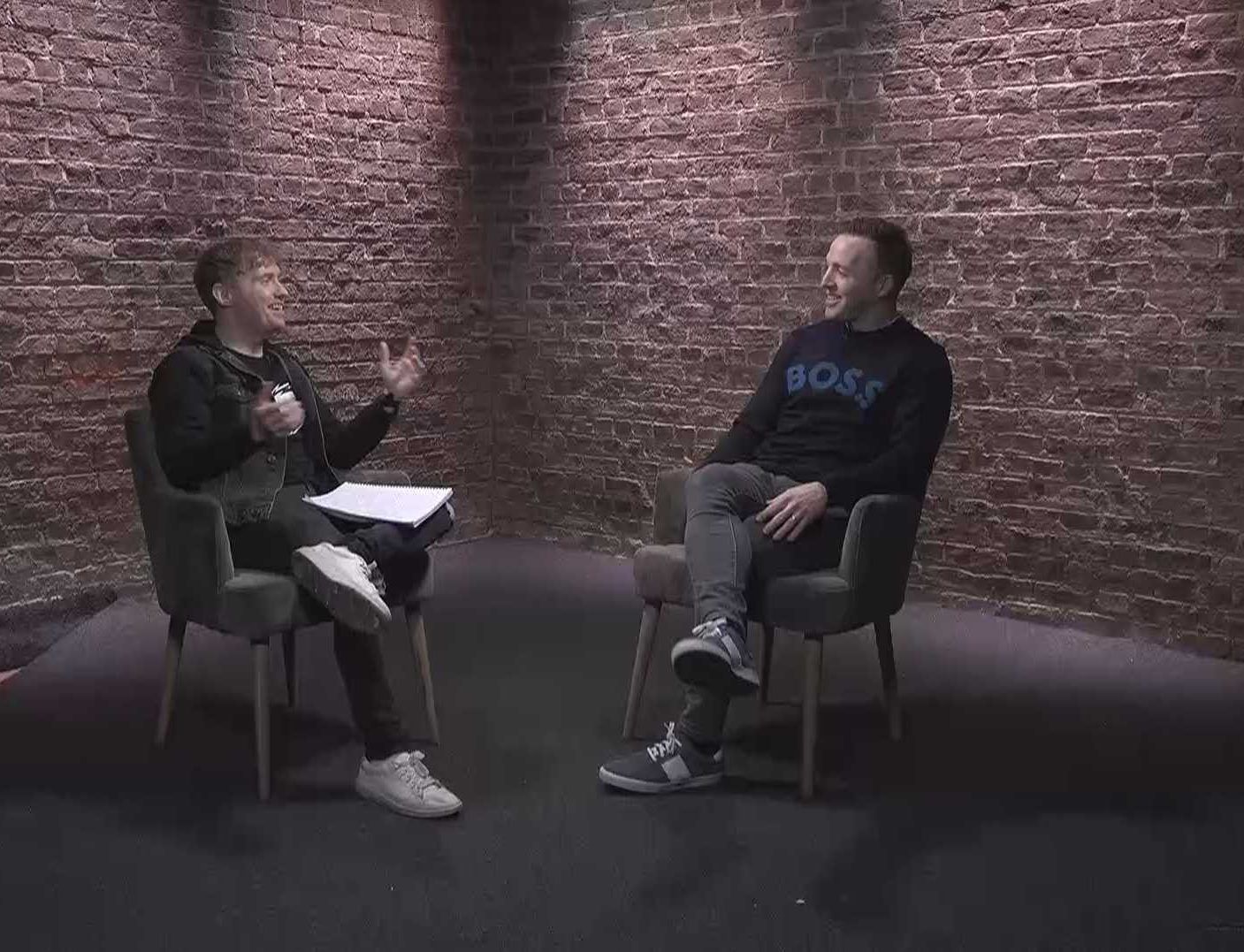 Darran O'Sullivan, four time All-Ireland winner, All-Star, and someone who captained their county to the holy grail - obviously achieving crazy ambitions isn't out of the ordinary for you, but in your wildest dreams did you ever think you would host your own show?
No, probably not. It's something I have always enjoyed, I enjoy watching sports shows, I enjoy watching analysis, and having conversations around sport, the GAA especially. So to get the opportunity to be a part of it, be a part of a show that has grown its reputation over the last number of years is great. Hopefully I can bring something new to the show, and it can drive on.
It's no secret that someone sat in the hot seat before you - our good friend Wooly was obviously there and one of his entertaining qualities was his willingness to engage with pundits, players and coaches, despite the fact that it might lead to an argument or two - did you ever have any run-ins with the man himself?
Myself and Wooly had one conversation, now it's going a long way back, I think it's when they were on about the number of people on the sidelines and we had a conversation - now a conversation, not a run-in - about the difference between a physio and a doctor on the sideline. It was probably worse on my part for getting involved, but I was a big fan of the show, and a big fan of Wooly. I think he was really good at what he did, and was well suited to it, so hopefully I can add a little something different to it. It might not be AS controversial, but who knows?
Darran O'Sullivan, four time All-Ireland winner, All-Star, and someone who captained their county to the holy grail - obviously achieving crazy ambitions isn't out of the ordinary for you, but in your wildest dreams did you ever think you would host your own show?
No, probably not. It's something I have always enjoyed, I enjoy watching sports shows, I enjoy watching analysis, and having conversations around sport, the GAA especially. So to get the opportunity to be a part of it, be a part of a show that has grown its reputation over the last number of years is great. Hopefully I can bring something new to the show, and it can drive on.
It's no secret that someone sat in the hot seat before you - our good friend Wooly was obviously there and one of his entertaining qualities was his willingness to engage with pundits, players and coaches, despite the fact that it might lead to an argument or two - did you ever have any run-ins with the man himself?
Myself and Wooly had one conversation, now it's going a long way back, I think it's when they were on about the number of people on the sidelines and we had a conversation - now a conversation, not a run-in - about the difference between a physio and a doctor on the sideline. It was probably worse on my part for getting involved, but I was a big fan of the show, and a big fan of Wooly. I think he was really good at what he did, and was well suited to it, so hopefully I can add a little something different to it. It might not be AS controversial, but who knows?
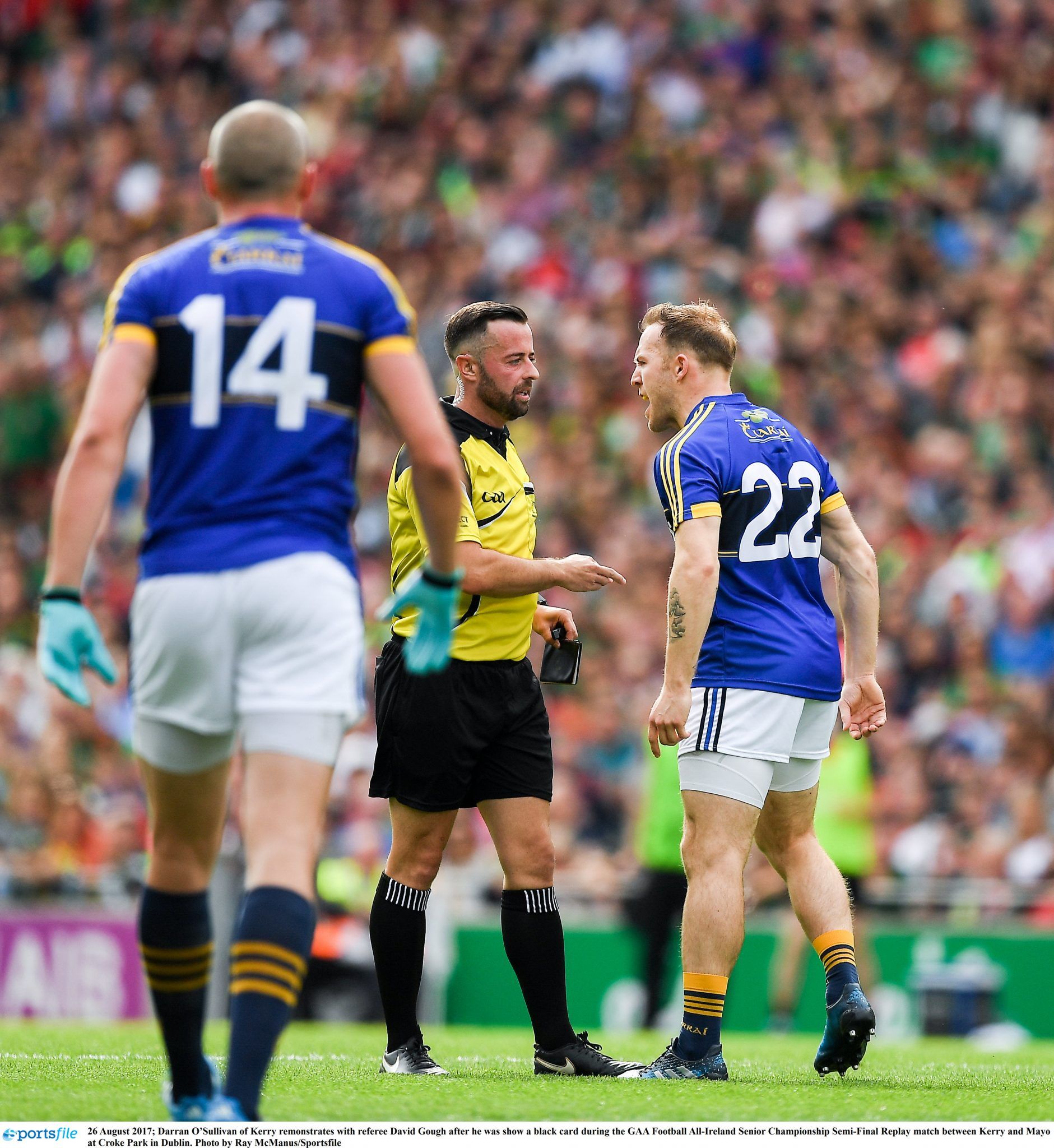 What can listeners expect from you?
Honesty really. My thing with football and sports is, don't try and reinvent the wheel, just call it as you see it. For me, GAA, football especially, is not a complicated game, it's fairly simple really and you comment on that. My problem with analysis a lot of the time is that people try to be too smart. So I will just be honest, call it as a I see it, and take my Kerry hat off as much as I can. I enjoy watching games, I'll give my opinion and sometimes people will agree, and sometimes they won't, that's the joys of it because you're never going to tick all of the boxes.
Let's go back to the start, your whole sporting journey began in London, that's where you grew up early on, so how did your love for the GAA evolve?
I was in London until I was 12, but everywhere I was, was Irish places and I used to be home as much as I was in London, every holiday, every week off, long weekend, summer, Christmas, Easter, whatever it was, I was home. I did play a lot of soccer, but my father brought me down to a GAA club, and I can't remember why we went to this particular GAA club but it was Tir Chonaill Gaels, the Donegal club. It was managed by a Cork man Dennis McCarthy, who I'm still very friendly with to this day. My first game was against Kingdom Kerry Gaels, I was playing wing forward, and I remember chatting to my marker before the game and him saying "my family are from Killarney" and I was like "mine are from Glenbeigh" and it was as though this was a big shock, but it was all new and I just loved it. I took to it fairly quickly, and when I eventually did move home, I had no interest in soccer, it was all about football.
[caption id="attachment_252599" align="alignnone" width="1550"]
What can listeners expect from you?
Honesty really. My thing with football and sports is, don't try and reinvent the wheel, just call it as you see it. For me, GAA, football especially, is not a complicated game, it's fairly simple really and you comment on that. My problem with analysis a lot of the time is that people try to be too smart. So I will just be honest, call it as a I see it, and take my Kerry hat off as much as I can. I enjoy watching games, I'll give my opinion and sometimes people will agree, and sometimes they won't, that's the joys of it because you're never going to tick all of the boxes.
Let's go back to the start, your whole sporting journey began in London, that's where you grew up early on, so how did your love for the GAA evolve?
I was in London until I was 12, but everywhere I was, was Irish places and I used to be home as much as I was in London, every holiday, every week off, long weekend, summer, Christmas, Easter, whatever it was, I was home. I did play a lot of soccer, but my father brought me down to a GAA club, and I can't remember why we went to this particular GAA club but it was Tir Chonaill Gaels, the Donegal club. It was managed by a Cork man Dennis McCarthy, who I'm still very friendly with to this day. My first game was against Kingdom Kerry Gaels, I was playing wing forward, and I remember chatting to my marker before the game and him saying "my family are from Killarney" and I was like "mine are from Glenbeigh" and it was as though this was a big shock, but it was all new and I just loved it. I took to it fairly quickly, and when I eventually did move home, I had no interest in soccer, it was all about football.
[caption id="attachment_252599" align="alignnone" width="1550"]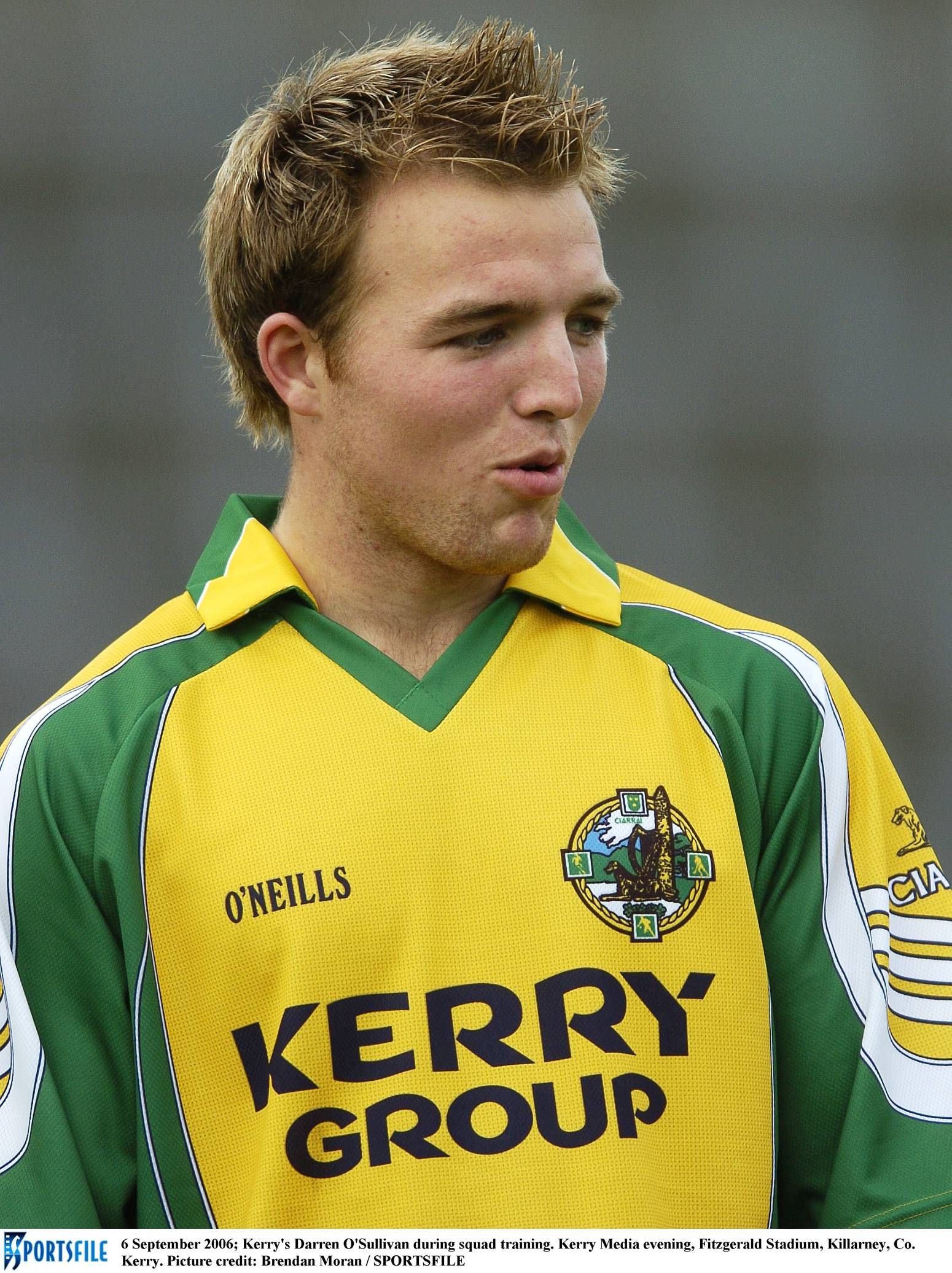 Did you have an English accent?[/caption]
I did have an English accent for a while, I was a bit of a cockney geezer, when I was at home playing for the local teams I used to get booked quite a lot for cursing in this very distinctive London accent so I couldn't get away with it. I got rid of it fairly quick though, when you go into the countryside, and my mates were fairly country, then you weren't long in changing.
You broke onto the Kerry senior panel at quite a young age, at a time when Kerry were dominant - who were the most intimidating players in the dressing room?
Probably intimidated by all of them at the start, I remember I was 18 repeating my Leaving Cert when I got asked into the senior team, and they trained on the astroturf that was at the side of my school. So, the same dressing room I would be togging out in for PE, I was now sitting in with all the big names, Séamus Moynihan, the Ó'Sé's, Ó'Cinnéide, the Gooch, like the list goes on. I just sat there like a mute. People talk about playing with their heroes, but I literally was.
Did you have an English accent?[/caption]
I did have an English accent for a while, I was a bit of a cockney geezer, when I was at home playing for the local teams I used to get booked quite a lot for cursing in this very distinctive London accent so I couldn't get away with it. I got rid of it fairly quick though, when you go into the countryside, and my mates were fairly country, then you weren't long in changing.
You broke onto the Kerry senior panel at quite a young age, at a time when Kerry were dominant - who were the most intimidating players in the dressing room?
Probably intimidated by all of them at the start, I remember I was 18 repeating my Leaving Cert when I got asked into the senior team, and they trained on the astroturf that was at the side of my school. So, the same dressing room I would be togging out in for PE, I was now sitting in with all the big names, Séamus Moynihan, the Ó'Sé's, Ó'Cinnéide, the Gooch, like the list goes on. I just sat there like a mute. People talk about playing with their heroes, but I literally was.
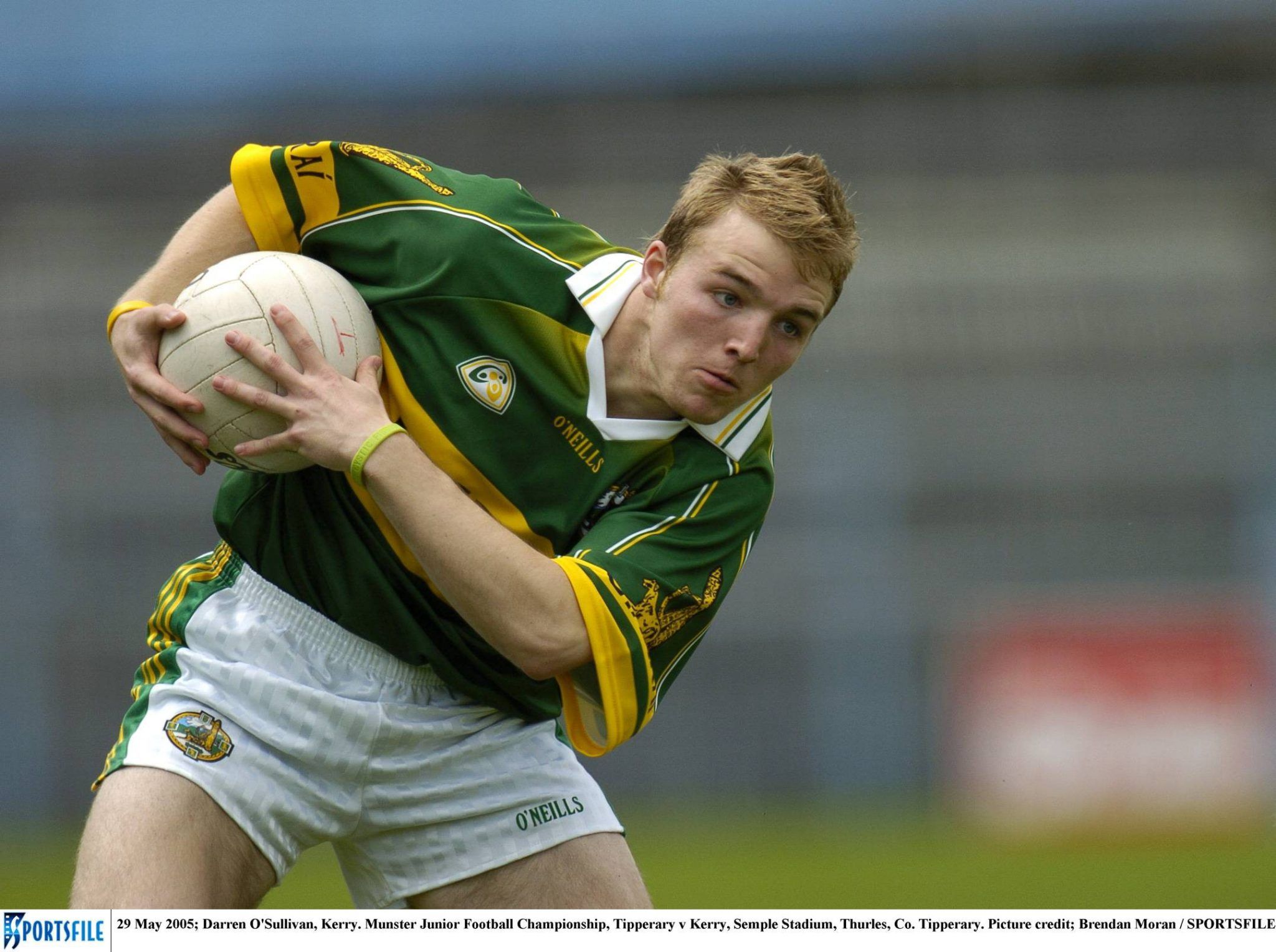 Kerry use the old traditional way of picking their captain, where it has to be a player who was a part of the club championship winning side. You obviously benefited from this personally, but what do you say to those who think it's a bit outdated?
It's a tough one for me to answer, so thanks for that. In one sense I don't agree with it anymore, but at the same time I wouldn't have got the chance to do what I got the chance to do without it. My own club were junior at the time, but when I played with Mid-Kerry we went on to win the county championship and they nominated me along with discussions with Jack O'Connor about who would most likely get in the team. I was 22 when I was named captain, by the time we won I was 23, but I was still a boy, still finding my own way.
Kerry use the old traditional way of picking their captain, where it has to be a player who was a part of the club championship winning side. You obviously benefited from this personally, but what do you say to those who think it's a bit outdated?
It's a tough one for me to answer, so thanks for that. In one sense I don't agree with it anymore, but at the same time I wouldn't have got the chance to do what I got the chance to do without it. My own club were junior at the time, but when I played with Mid-Kerry we went on to win the county championship and they nominated me along with discussions with Jack O'Connor about who would most likely get in the team. I was 22 when I was named captain, by the time we won I was 23, but I was still a boy, still finding my own way.
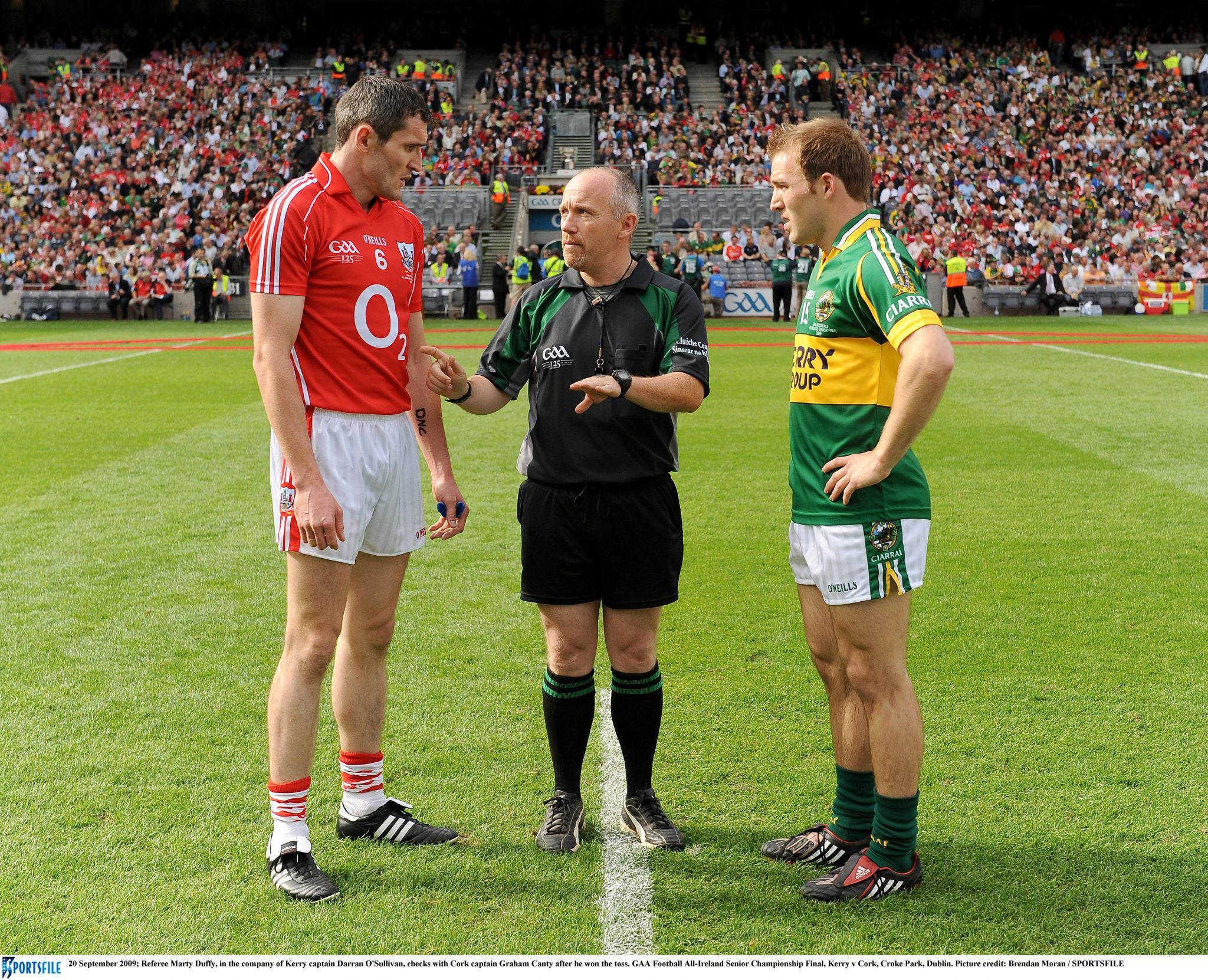 I started all the way through the league, but lost my place for the Munster championship. We went through the qualifiers where I got my place back, but even going into the final, that fear of "Jesus, I could be left out for this game," was there. I remember Jack ringing me a good three weeks before the game and going "enjoy the build up, don't worry about it, you're on". I was never one to get bogged down with pressure, but that time with the captaincy I did a bit and that expectation of how the captain should start, and the speech and all of that craic.
I started all the way through the league, but lost my place for the Munster championship. We went through the qualifiers where I got my place back, but even going into the final, that fear of "Jesus, I could be left out for this game," was there. I remember Jack ringing me a good three weeks before the game and going "enjoy the build up, don't worry about it, you're on". I was never one to get bogged down with pressure, but that time with the captaincy I did a bit and that expectation of how the captain should start, and the speech and all of that craic.
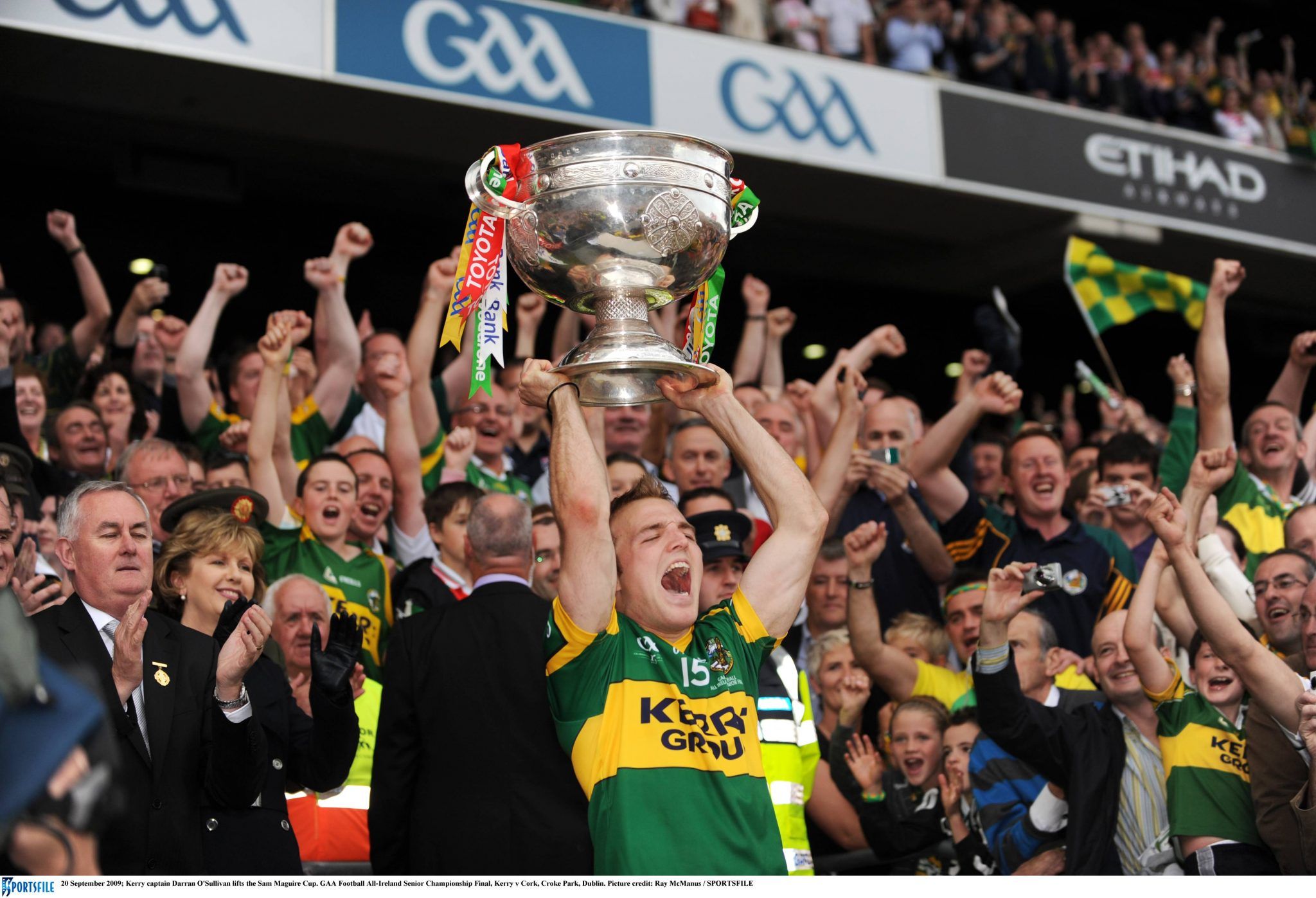 It's probably not ideal, and in the last couple of years, the fellas who got it probably haven't been established, sometimes not even on the squad that long, literally just through the door, very little football under their belts and then made captain. So I find it weird being the one to say that it's probably a bit outdated, because I probably wouldn't have got the opportunity if it wasn't for this. It was great and wonderful, the way that it worked out, but I would love to have been the captain at an older age.
It's probably not ideal, and in the last couple of years, the fellas who got it probably haven't been established, sometimes not even on the squad that long, literally just through the door, very little football under their belts and then made captain. So I find it weird being the one to say that it's probably a bit outdated, because I probably wouldn't have got the opportunity if it wasn't for this. It was great and wonderful, the way that it worked out, but I would love to have been the captain at an older age.
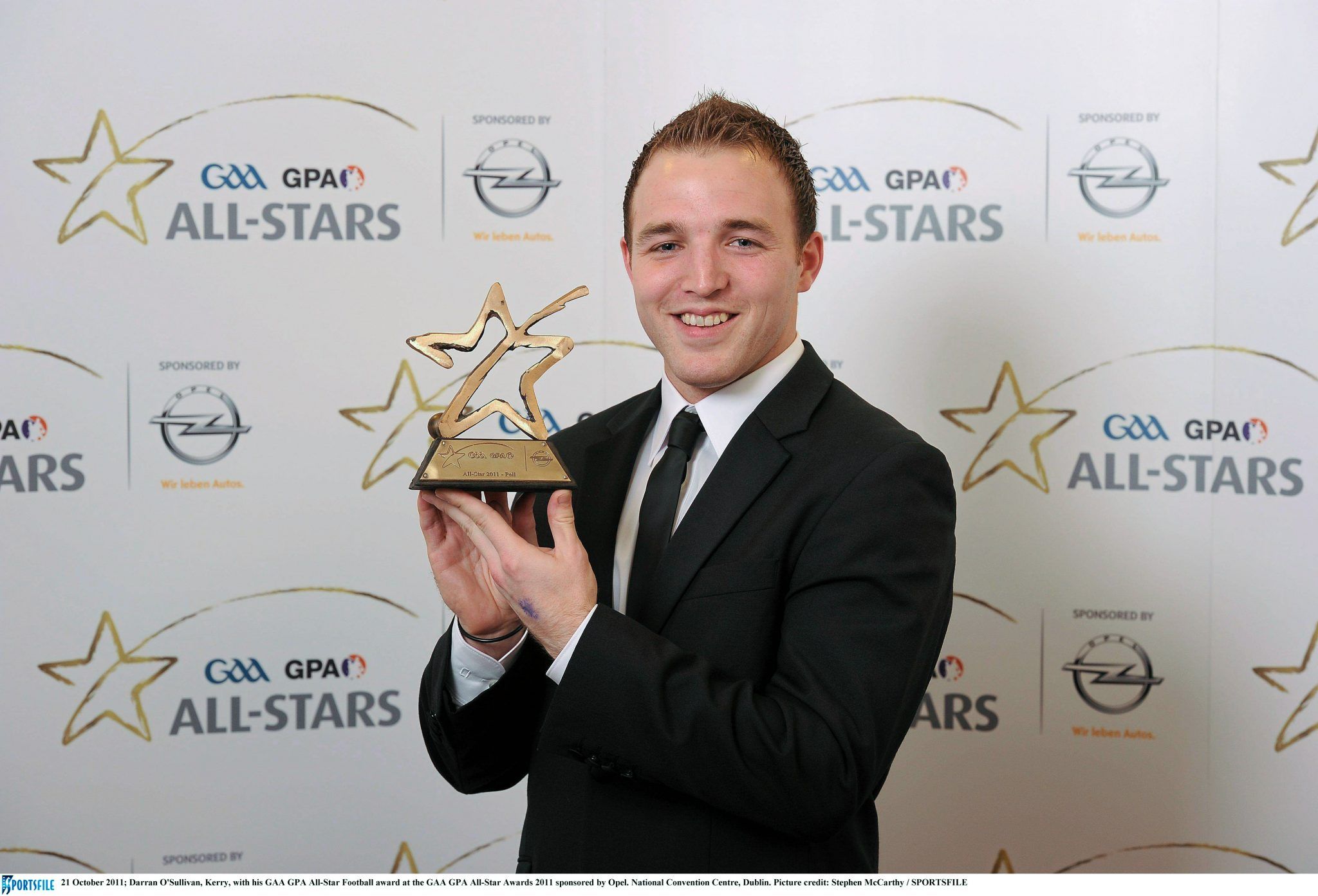 When did you feel it was time to retire?
I retired subconsciously probably two years before I did, I wasn't really enjoying it. I got to the stage where my body just couldn't take the training and my body was breaking down, and I was fighting an uphill battle. then I wasn't getting on when I wasn't getting on. I probably wasn't doing what I wanted to be doing, and you know what, I was just getting cranky.
When did you feel it was time to retire?
I retired subconsciously probably two years before I did, I wasn't really enjoying it. I got to the stage where my body just couldn't take the training and my body was breaking down, and I was fighting an uphill battle. then I wasn't getting on when I wasn't getting on. I probably wasn't doing what I wanted to be doing, and you know what, I was just getting cranky.
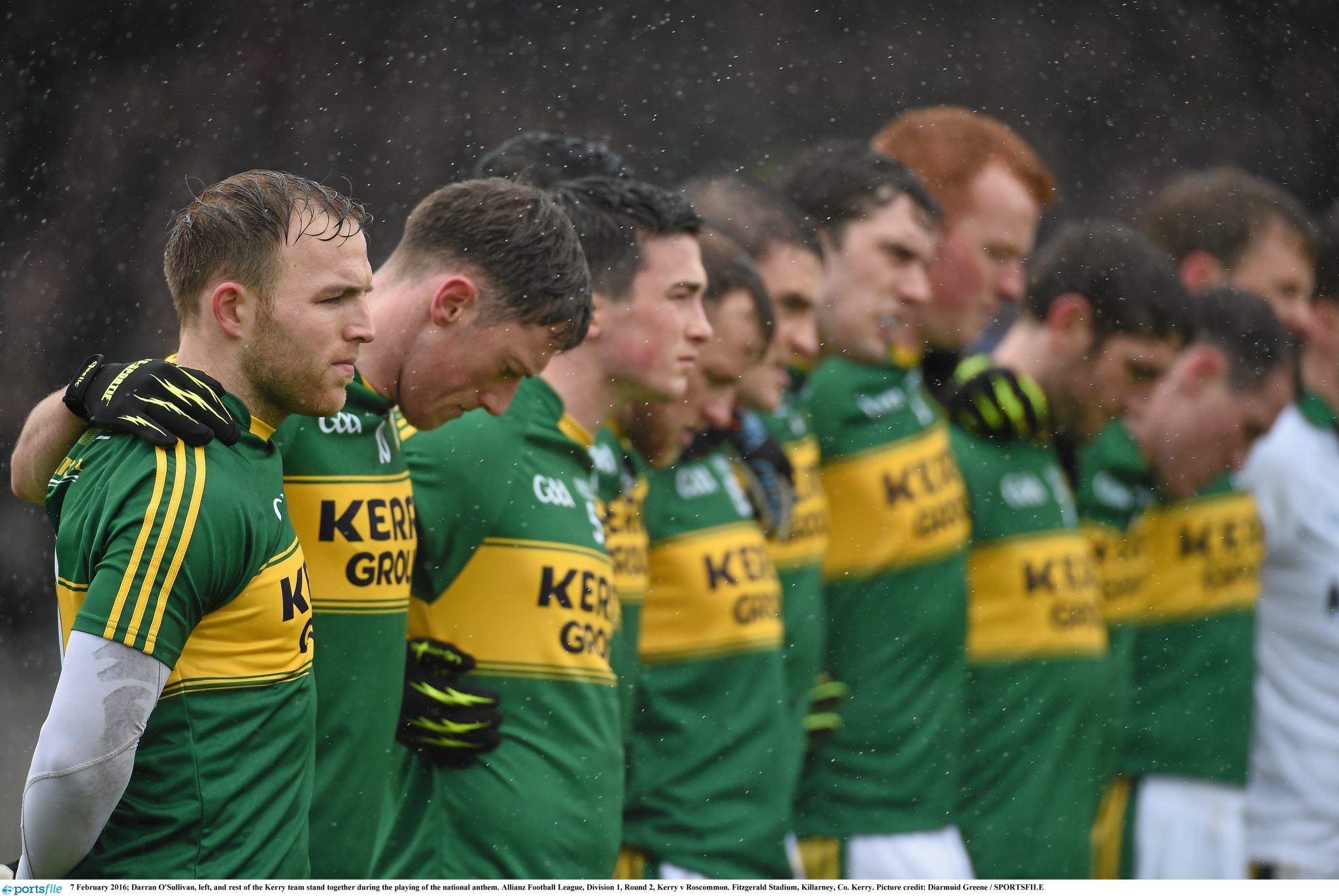 When I retired I was probably training more than I ever did and I loved it because it was training I felt suited my own body, my calendar and my own diary. I could dictate it. I knew it was time to go and the medals were great, but I have memories that I will never forget, so I was happy enough to go out when I did.
When I retired I was probably training more than I ever did and I loved it because it was training I felt suited my own body, my calendar and my own diary. I could dictate it. I knew it was time to go and the medals were great, but I have memories that I will never forget, so I was happy enough to go out when I did.
Explore more on these topics: